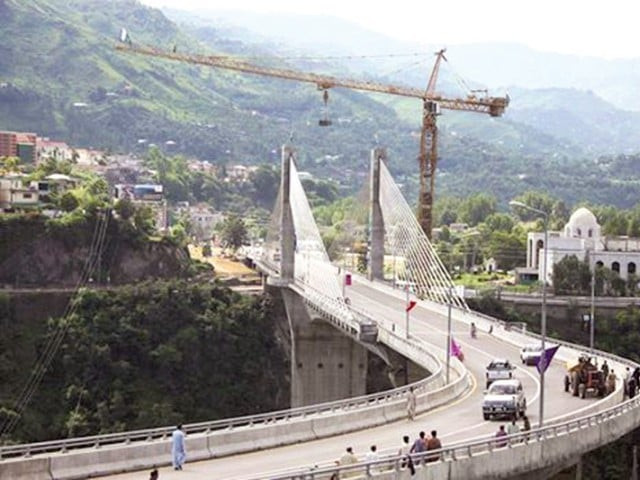After the ‘Quake
There remains much to do for the rehabilitation of areas affected by the earthquake of 2005.

Japan has been particularly supportive in terms of infrastructure projects, one of which was inaugurated on August 20, 2014. The elegantly curving Naluchi-Chattar suspension bridge spans the Jhelum river and was funded by the Japan Bank of International Cooperation (JBIC). It is 60 metres above the river and 246 metres long — as well as being at least two years late, a feature of so many post-quake projects. The bridge will do much to ease peak-time traffic congestion in Muzaffarabad and is a welcome addition to the civic infrastructure.
Although nearly nine years have passed since the quake across much of the affected region, health and education services, roads, water supply and sanitation and waste management have yet to reach pre-quake standards and in some cases remain far below. It is accepted that recovery from such a massive natural event was never going to be quick, easy or cheap but the old dangers of corruption, poor administration and shoddy work done on the cheap have all had their fingers on the recovery phase. The education system lost 7,000 schools, 900 teachers and 18,000 pupils on that fateful morning. The human debt can never be repaid, but it is shameful that the regeneration of the school system lags so far behind. There remains much to do.
Published in The Express Tribune, August 22nd, 2014.
Like Opinion & Editorial on Facebook, follow @ETOpEd on Twitter to receive all updates on all our daily pieces.














COMMENTS
Comments are moderated and generally will be posted if they are on-topic and not abusive.
For more information, please see our Comments FAQ